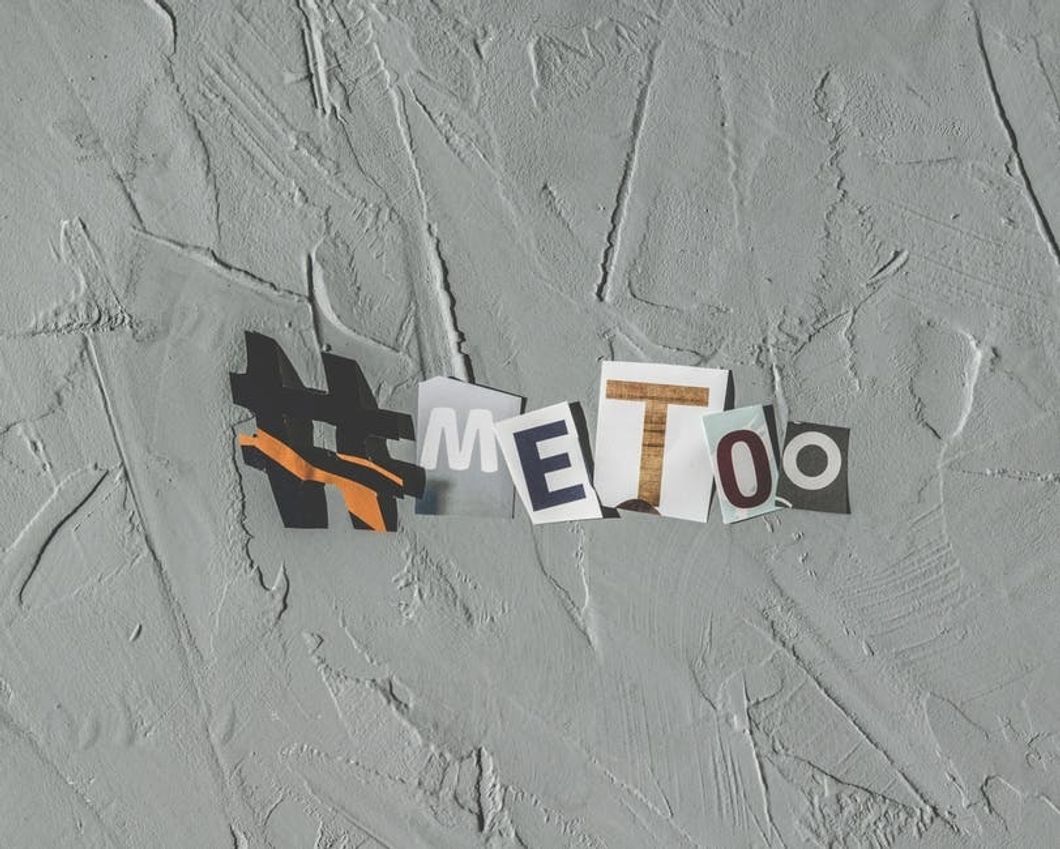Sexual assault is a difficult topic to discuss, both because of its borderline-taboo status and uncomfortable nature. It's come to my attention, though, that while victims are opening up to the topic of sexual assault, the discussion is largely being held by the women of our society. The reason of this is pretty clear: as far as sexual assault goes, 91% of rape and sexual assault victims are female, leaving 9% for the males, according to the National Sexual Violence Resource Center (NSVRC). Of the United States population, one in five women and one in seventy-one males will face sexual abuse. The statistics are chilling, but what's worse are the long-term impacts of such encounters, depression, anxiety, post-traumatic stress disorder, paranoia being the most common mental effects. All that being said, though, are the statistics correct?
According to the NSVRC statistics, only twelve percent of incidences of child abuse are reported, leaving so many instances of sexual abuse undocumented and unaccounted for. I, a male, have been dating on and off for the last four years, more or less. I've had a number of partners, each being great, enjoyable people of moral and ethical integrity, each with their own personal and interpersonal issues. Each of them was different from each other, partaking in their own hobbies and recreational activities, each with different friend groups, each with their own unique personalities. Of those girls with whom I've had relationships, every single one of them recalled an encounter with sexual harassment or abuse.
We've all been made aware of this growing epidemic – I recall the lecture hall that I sat down in as an official of some sort or another went over the grounds for sexual assault, the consequences that a perpetrator could face, and the situations in which sexual assault could arise. At the time, while I recognized its importance and severity, I never thought it'd impact me personally, so I took the words of caution and pocketed them with the thought that I'd steer clear of any potentially sketchy situation.
Being on a college campus, those situations found me. While I thought I could avoid them, I couldn't. Whether I was walking down streets in the local downtown area to me at night, walking into local establishments, or going into the college dormitory buildings, instances that could be described as sexual harassment or assault were rampant. It was only after taking note of the frequency of these occurrences – after dealing with the situation myself or bringing in somebody that could deal with it more effectively – that I became aware of sexual assault.
Over a quarter of women on college campuses have experienced some sort of unwanted sexual contact, according to recent statistics, but 90% of victims leave the incident unreported. Nobody wants to talk about what's happened to them, whether it be because of fear of social backlash, the mental trauma endured by recalling the incident, or maybe because they think that others don't care to hear it. As a male in the dating pool of a college campus, I've found that I can't ignore it, I can't avoid situations reeking of potential sexual assault, and the impacts of sexual assault in my own interpersonal relationships have come to cause me discomfort and frustration as well.
This situation doesn't have a clean-cut solution; otherwise, it would've been dealt with long ago. Legal statutes and implementation of countermeasures to deter sexual assault can't make the problem go away; it's too complex for that, between all parties and factors involved. I'm not presenting you with a call to action, but rather a request to be more aware of the situation.
It's difficult, unsavory, almost taboo, and very uncomfortable to address, but by opening up a dialogue about the topic of sexual assault and the frequency of which it occurs, there's a significant change to be made. I've seen too many eyes flick away from potentially dangerous situations, heard too many people redirect a conversation when the topic of sexual assault is spoken of, and with the increased numbers of sexual assault rising in the general population, my local community, and within my own social circles, I'm tired of steering away from the discussion we all need to have.
April is the month of sexual abuse awareness, and as more people want to go explore their communities with the newfound warmth and exuberance that comes with Spring, I'm asking you to be more aware of sexual abuse. With the uptick in social events that arise in these warmer events, I want you to be more aware of those around you and of your own actions – recognize the situations at hand, regarding the people around you, and actively notice and do something if you observe a potentially shady situation arise. Open up your eyes and ears to what's going on about you, and if nothing else, let's stop keeping this subject in the shadows of conversation.
Anyone affected by sexual assault, whether it happened to you or someone you care about, can find support on the National Sexual Assault Hotline - 800.656.HOPE (4673). You can also visit online.rainn.org to receive support via confidential online chat.



















